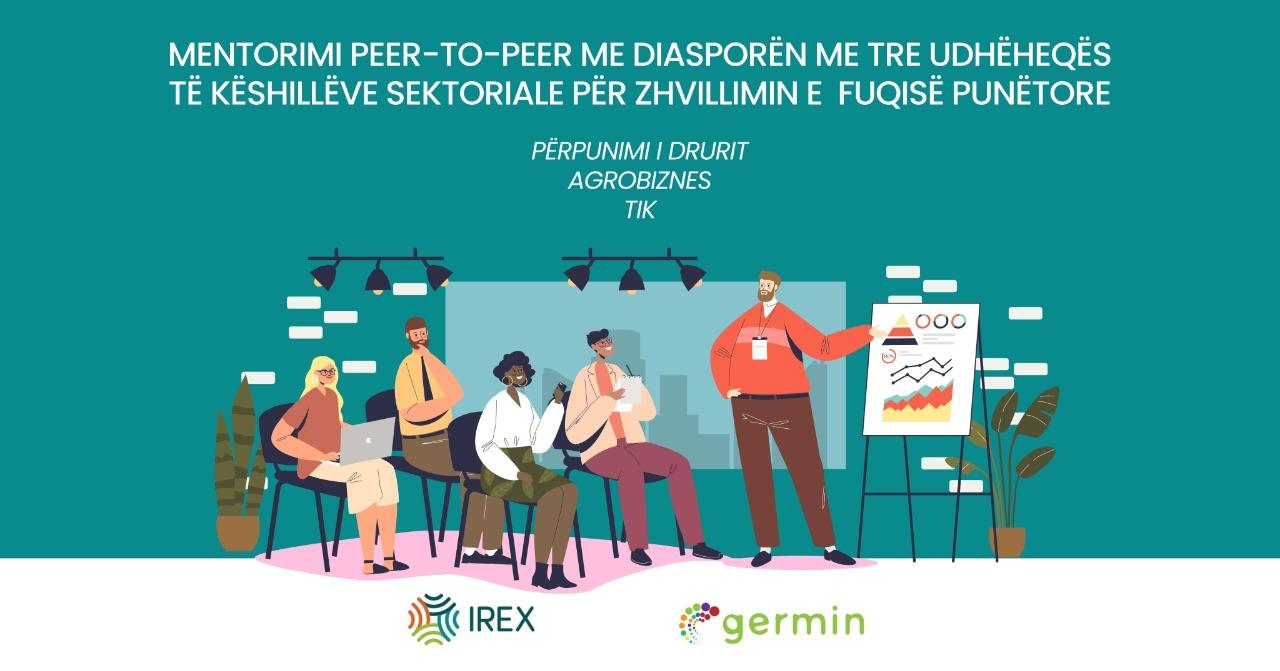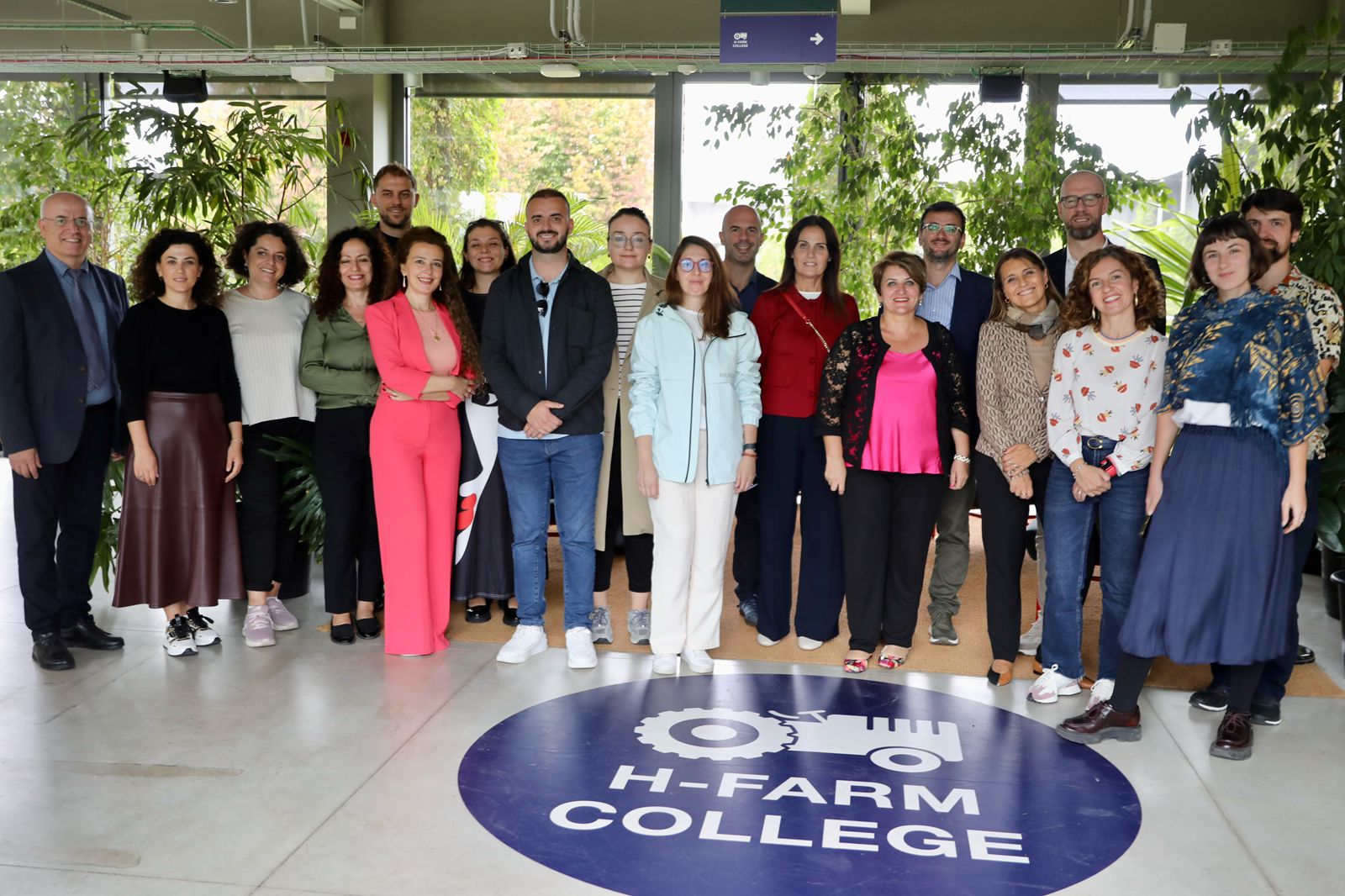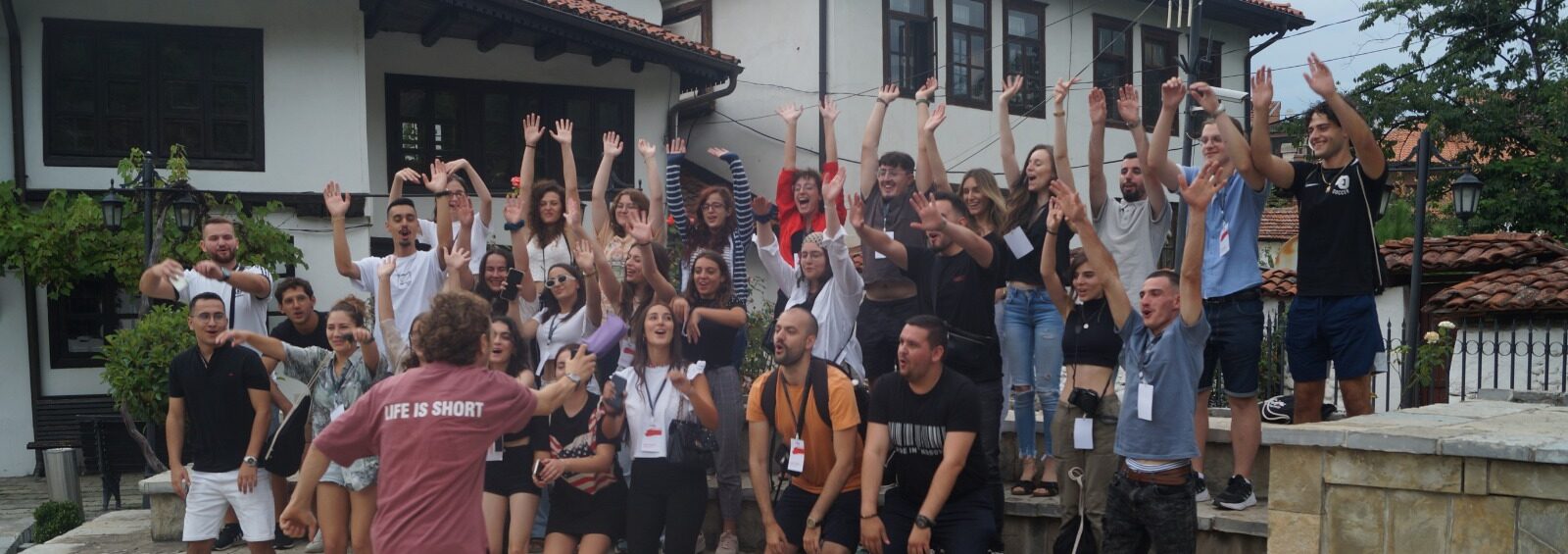Do you want to become active and supportive as a mentor in your home country? You want to inspire others similar to you by reflecting on and sharing knowledge in order to contribute to positive changes in your community? Then you might be who we are looking for!
Through the “Peer-to-Peer Diaspora Mentorship Activity”, GERMIN is facilitating 8 mentoring sessions between diaspora professionals and three Sector Workforce Councils Leads, respectively on sectors of Wood Processing, Agribusiness and Information and Communication Technology (ICT), in which diaspora investors, entrepreneurs, and others can serve as mentors and support Councils’ Leads on Council functionalization and capacity building, corporate social responsibility funds modalities and opportunities, investment on training initiatives on workforce development, and on similar business optimization and development strategies. The three Sector Workforce Councils are established by the five-year USAID-funded Private Sector-Led Workforce Development Activity in Kosovo (PSWD).
The aim of the “Peer-to-Peer Diaspora Mentorship Activity” is to use virtual coaching sessions to meet and share ideas and experiences and discuss opportunities for further networking and collaboration between the three above-mentioned business sectors’ representative and diaspora mentors. Therefore, we are looking for 3 motivated diaspora professionals who want to give back to the community and become the first mentors in this mentorship program.
If you are a professional in the diaspora and want to contribute to your country of origin, please follow for more details the Terms of Reference (ToR) and application details in this LINK
All applications must be submitted to GERMIN electronically at [email protected] with the subject: Peer-to-Peer Diaspora Mentorship Activity Application. The last date for submission of applications is 25 November 2022.
*Peer-to-Peer Diaspora Mentorship is an activity implemented by GERMIN and supported by IREX, as part of the five-year USAID-funded Private Sector-Led Workforce Development Activity in Kosovo.
About the USAID PSWD Activity
The Private Sector-Led Workforce Development Activity in Kosovo (PSWD) is a five-year activity that supports the Kosovan private sector to develop and strengthen the workforce with more market-driven skills.
PSWD harnesses collaboration between the private sector, technical and vocational education and training providers, government, youth and civil society organizations to prepare young people with skills to meet the needs of Kosovo’s growth industries and help them move into jobs in these sectors. PSWD will address system constraints and leverage opportunities in three interrelated areas: skills demand, skills supply, and the enabling environment.
Goals:
Advance private sector leadership in collaboratively determining needs, designing, and financing tailored workforce solutions (Demand).
Strengthen private sector and key workforce ecosystem actors’ capabilities to co-implement and co-assess workforce solutions (Supply).
Strengthen workforce ecosystem relationships for sustained collaboration on inclusive employment solutions (Enabling Environment).
Activities:
These goals will be achieved through the following core activities:
Establish Sector Workforce Councils in the Information and Communications Technology, wood processing, and agribusiness growth sectors to unite employers, educators, the diaspora, civil society, policymakers, and donors to define workforce development needs, and support workforce development solutions. The activity will work with Council leads to advance their ability to strategically manage the Councils, use data to develop responsive vocational and technical education, connect with the diaspora to catalyze support, and promote workforce solutions that are inclusive.
Provide Workforce Innovation Grants to strengthen the supply of flexible, demand-led, workforce development solutions. Through careful control of grant eligibility and selection criteria, PSWD will incentivize the behavior it wants to promote and identify committed and capable recipients who are well positioned to take ownership, deliver with increasing autonomy, and sustain activities after PSWD closes.
Support data informed decision-making to ensure that workforce solutions are demand-driven and evidence-based, and to demonstrate value to incentivize sustainable investments in workforce development. PSWD will support each Sector Workforce Council to improve its use of data through the improvement of, or development of new digital tools that provide labor market information and measure the performance and impact of new and improved training programs.
Support positive youth development, gender equality, and social inclusion to support diverse youth to influence and benefit from workforce solutions, ensuring that their voice is front and center throughout: as members of Sector Workforce Councils, as participants on Workforce Innovation Grant selection panels, and as central actors in annual learning exchanges.




